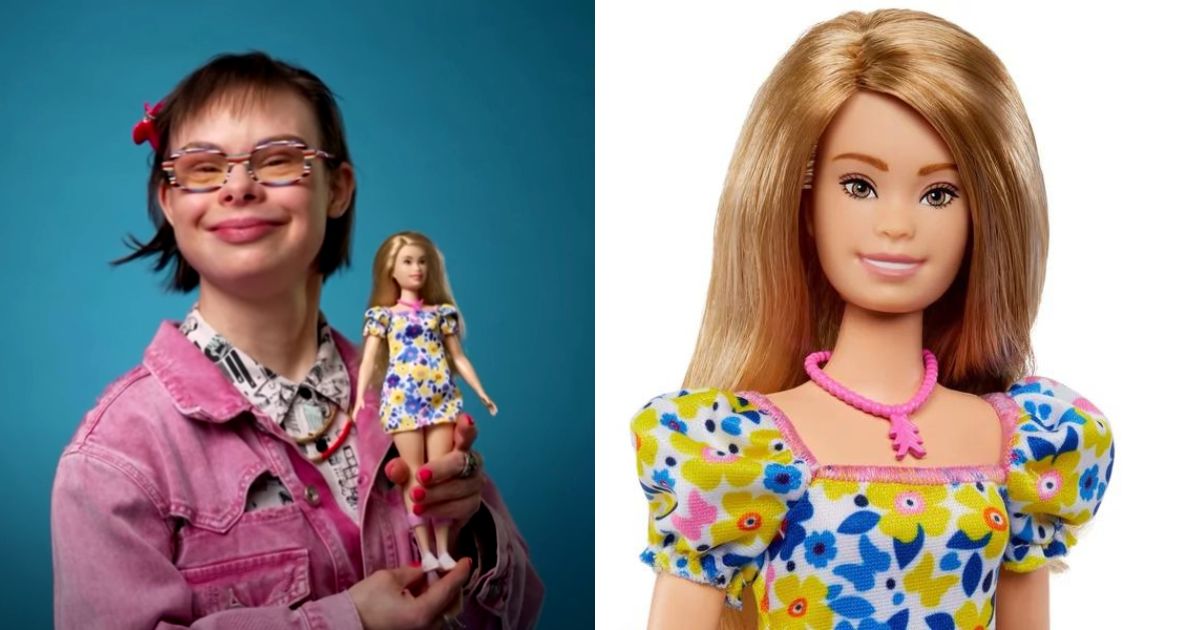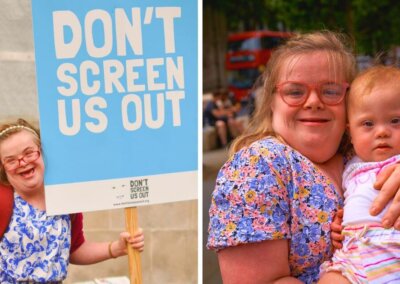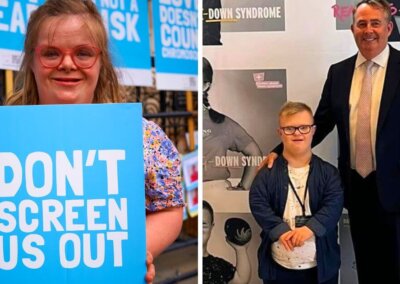A new Barbie doll with Down’s syndrome is set to be released later this year.
The company behind Barbie, Mattel, have announced that the Barbie will be available later this year. Lisa McKnight, executive vice president and global head of Barbie and Dolls at Mattel said “We are proud to introduce a Barbie doll with Down syndrome to better reflect the world around us and further our commitment to celebrating inclusion through play”.
In making the doll, Mattel partnered with the National Down Syndrome Society. The Barbie with Down’s syndrome wears a necklace with three chevrons representing the three copies of the 21st chromosome, the genetic variation that causes Down’s syndrome. The Barbie also wears a blue and yellow dress decorated with butterflies, the colours and symbols of Down’s syndrome awareness.
Eléonore Laloux, a city councilwoman in France who has Down’s syndrome, came out in support of the doll saying “I want to share my experience and show the world that you can live happily [with Down’s syndrome]”.
Matt Walsh of the Daily Wire described the Barbie as “pro-life” and Lila Rose, president of Live Action, a US pro-life group, simply said “Love this”.
Cortney Weil at the Blaze said “The doll with Down syndrome could… mark a shift in the way Western culture views people with the condition.”
Discriminatory abortion law challenged
Heidi Crowter, a 27-year-old woman from Coventry who has Down’s syndrome, had challenged the UK Government over a disability clause in the current law that allows abortion up to birth in those cases where it is thought the baby is disabled.
Together with Máire Lea-Wilson, the mother of Aidan, a young boy who has Down’s syndrome, Heidi argued that the abortion law was incompatible with the European Convention on Human Rights.
Sadly, however, the Court of Appeal released its judgement that the UK abortion law was not discriminatory against people with disabilities and people with Down’s syndrome in particular.
Shortly after the decision was announced, Heidi told a rally outside the Court “This law was made in 1967 when we were not even allowed to go to school because of our extra chromosome, so I think it’s time that the judges move with the times and actually meet people with Down’s syndrome and see the people behind the chromosome.”
Along with her legal team, Heidi is now considering seeking permission for the case to be taken on to the Supreme Court.
Abortion up to birth if the baby has Down’s syndrome
Currently in England, Wales and Scotland, there is a general 24-week time limit for abortion, but if the baby has a disability, including Down’s syndrome, cleft lip and club foot, abortion is legal right up to birth.
There were 3,370 disability-selective abortions in 2021. The number of late-term abortions at 24 weeks gestation or over where the baby has a disability increased by 20% from 229 to 274.
The statistics showed there were 859 abortions where a baby had Down’s syndrome in 2021, an increase of 24% from 2020. The statistics also show a 71% increase in late-term abortions at 24 weeks gestation or over where the baby had Down’s syndrome, increasing from 14 in 2020 to 24 in 2021.
Right To Life UK spokesperson Catherine Robinson said “This is a positive initiative tha, hopefully, will help to change societal attitudes to people with Down’s syndrome.”












